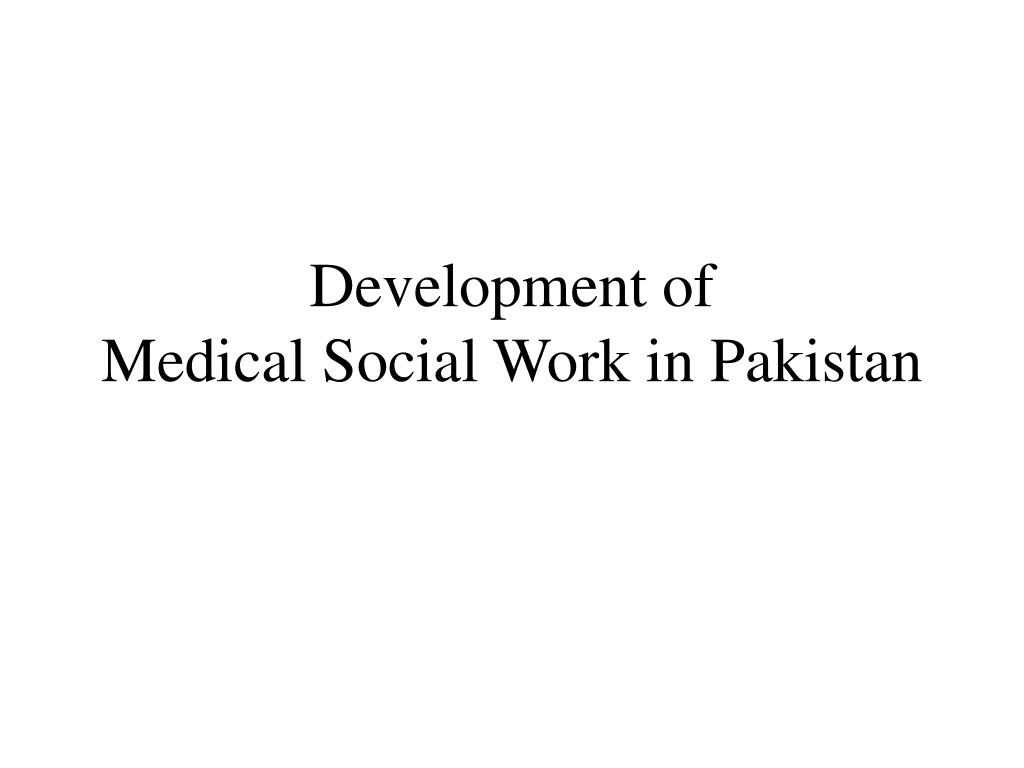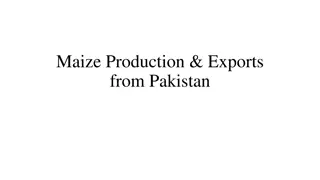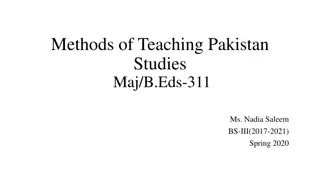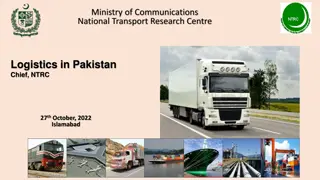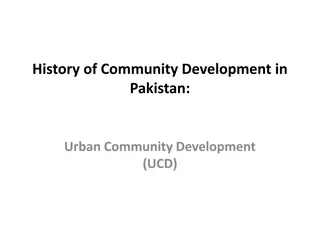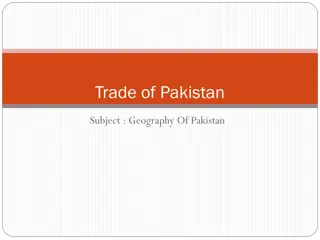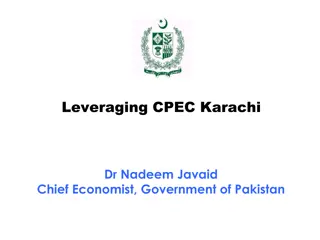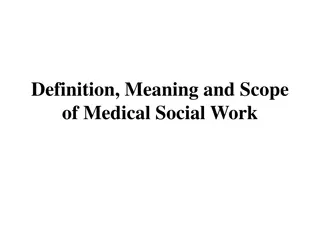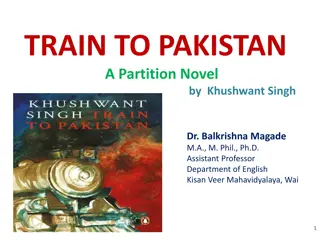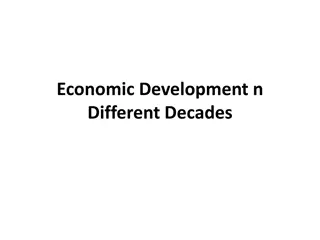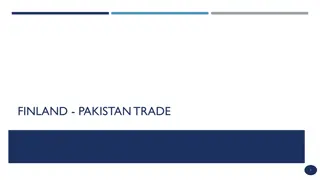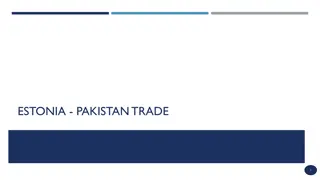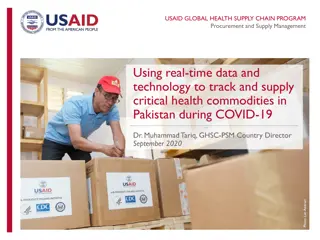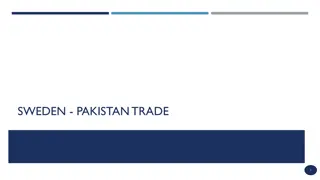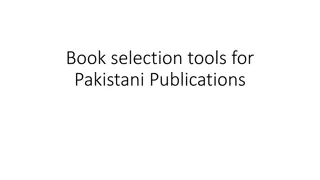Development of Medical Social Work in Pakistan: A Historical Overview
In 1953, Miss Anna Mo Toll, a Swedish medical social worker, introduced medical social work in Pakistan, initially met with confusion and skepticism. Over time, medical social work units have been established across provinces to address the basic needs of patients, such as access to medicines, rehabilitation, family support, and health education. The integration of Zakat funds and Bait-ul-Maal system has provided financial assistance and support for patients in hospitals. The charity-oriented nature of the Pakistani society has contributed to the development and sustainability of public assistance programs in the country.
Download Presentation

Please find below an Image/Link to download the presentation.
The content on the website is provided AS IS for your information and personal use only. It may not be sold, licensed, or shared on other websites without obtaining consent from the author. Download presentation by click this link. If you encounter any issues during the download, it is possible that the publisher has removed the file from their server.
E N D
Presentation Transcript
Development of Medical Social Work in Pakistan
In 1953, Miss Anna Mo Toll, a Swedish, medical social worker visited Karachi, in response to the request from the Govt. of Pakistan to UN. At that time everyone was confused about the meaning and scope of Medical Social Work and apprehensive of its success in a country where the basic needs took overwhelming priority over individual assistance some health officials even felt that there was no need to train people specially for medical social work. If lady health workers were given some training it would serve that purpose. This was of course, totally unacceptable. A few doctors, who had trained from abroad were familiar with the Medical Social work.
First medical social work was appointed at TB Control and Training Centre in 1953 under the joint auspices of the Govt. of Pakistan and the United Nation. Almost all the universities have department of social work and they provides training Medical Social work. Initially the services of medical social work was under the welfare, but, now, it is operated through the provincial Directorates of Social welfare. There are about 90 medical social work units in Punjab, 29 in Sindh, 1 in Baluchistan and 4 in Khyber Pakhtoon Khwa. In addition to the major government hospitals, several private hospitals and health related institutions have also employed medical social work like SIUT, children Hospital, KPH, The Kidney Center, The Laybton Rehmatullah Trust for Blind and Pakistan Eye Bank Society.
The needs of patients were basic. They centered around the inability to buy medicines, help for rehabilitation, Solution of family problems, health education and so on. The role of the MSW (Medical Social Work) was to respond to these basic needs. Zakat is religious tax voluntarily paid by an individual to those found in need it was started in 1980, Zakat is deducted from the bank accounts of individual and a portion of it is reserved for patients in hospitals. This was the beginning of a future public assistance program in Pakistan. Zakat funds have been allocated to each hospital on the basis of beds for the needy and for providing financial assistance to purchase medicines and rehabilitation equipments. This job was assigned to the MSWs in each hospital throughout the country. The funds are operated by a Patient Welfare Association of which the hospital administrator is the chairman, and the MSWs is the secretary, with a few non-governmental persons as members.
Later, the system of Bait-ul-Maal was created from transfer of receipt from tax, grants, from the federal, provincial, and local authorities, organizations international agencies, voluntary donations including sadqat, and Kahirat (personal charities). It is broad and well-planned infrastructure of an Islamic Public Assistance System Developed which provides much needed support to medical social work at every level. People in Pakistan are charity oriented be it on a personal or a collectively organized basis as well as personal. This charity attitude had to be channelized and demonstrated as the only means of achieving along-term rehabilitation. Only when the medical professionals, including nurses, witnessed for themselves the usefulness of medical social workers in benefiting their patients that the profession was able to gain acceptance. The introduction of the Zakat and Baitul-Maal System and distribution of its funds to the sick and the needy through medical Social Worker in hospitals provided strong support to the program and contributed to a great extent to its strength and sustainability.
Reference Malik, A., & Sarfaraz, S. F. (2012). Social Work practice in Health Care with special reference to Pakistan. Pakistan Journal of Commerce and Social Sciences (PJCSS), 6(1), 210- 215.
